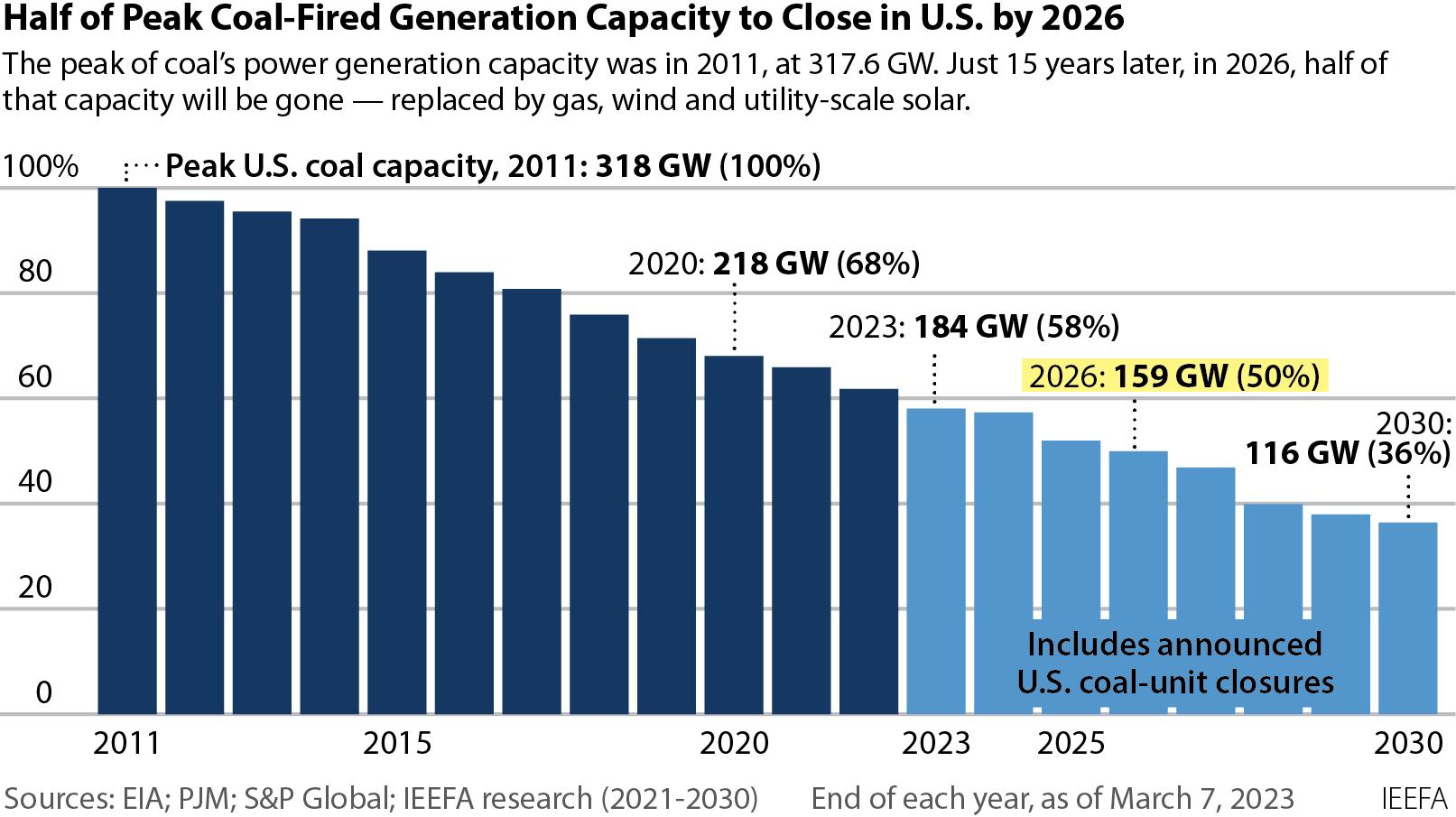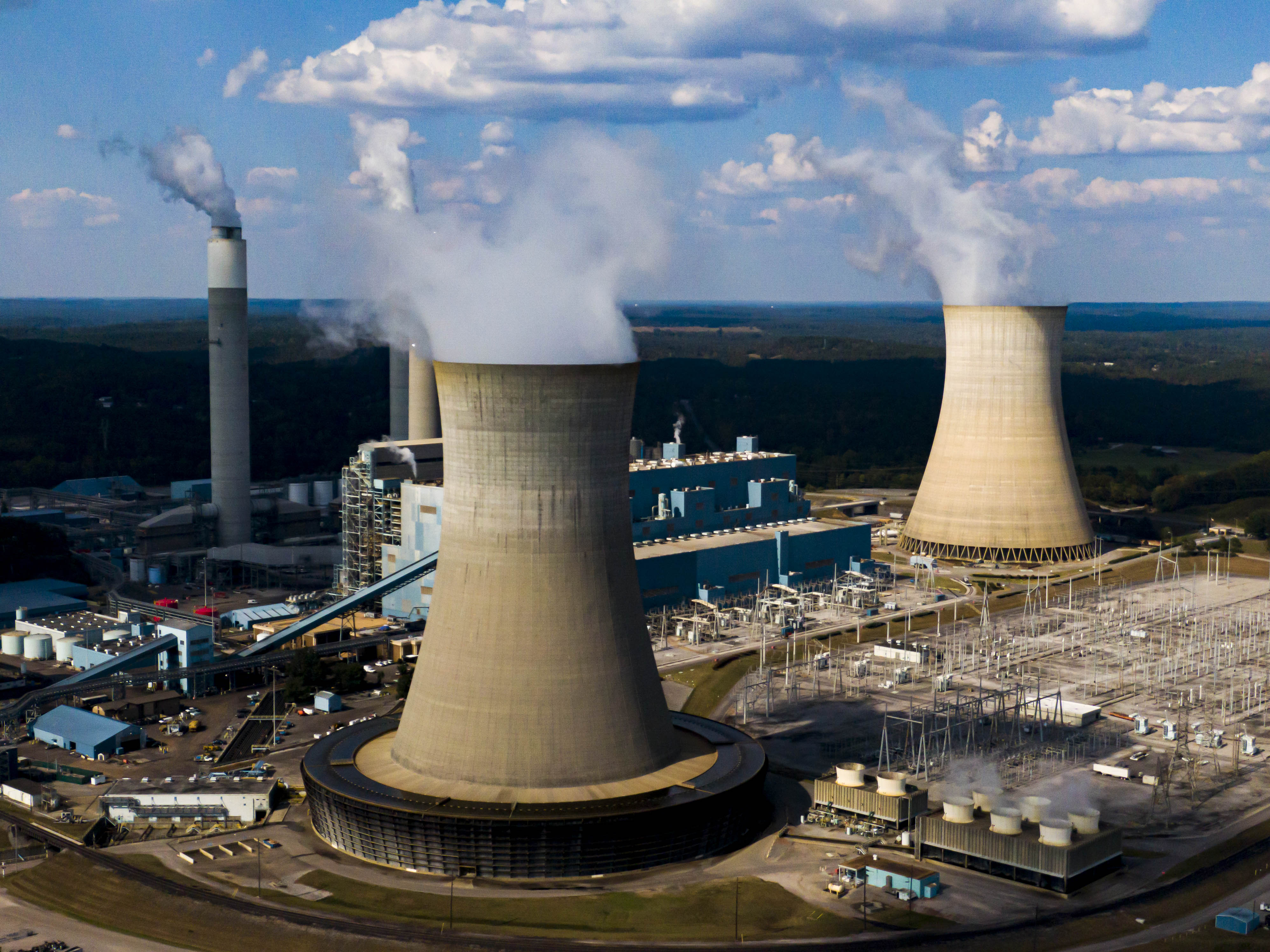Trump's 2-year suspended 2 years gives coal power plants a free pass to pollute '

Last year, the American environmental protection agency gave the nearly 200 electric coal power plants in this country until 2027 to install or improve air quality monitoring devices on fireplaces to respond to federal guidelines to reduce dangerous pollutants, including mercury, arsenic, lead and particles.
But through executive actionPresident Donald Trump last month granted a two -year reprieve to some of these reinforced (mat) plants of mercury and toxic air, which required continuous monitoring of air pollutants.
This is part of Trump's continuous efforts to stimulate the use of fossil fuels and undermine President Joe Biden's thrust to reduce the threats of climate change and improve the health of people living in communities plagued by industrial pollution. The exemption applies to About a third of all American coal factories.
These toxic and dangerous emissions have been linked to cancer, neurological damage and developmental disorders, “even at extremely low levels of exposure,” said Margie Kelly, spokesperson for the council for the defense of natural non-profit resources, calling the two-year break “a free pass to pollute”.
“We are considering an extension of two years as [a] Step… to get rid of these standards of mercury and particles and to completely get rid of the surveillance requirement for continuous emissions, “said Joseph Goffman, former assistant administrator of the EPA Air and Radiations under Biden.
The extension, which was among the list of deregulative actions announcement By the administrator of the EPA, Lee Zeldin, aroused strong criticism of environmental groups, including those of Louisiana, where three coal power plants still operate. The combustion of fossil fuels to produce electricity is one of the main contributors to greenhouse gas emissions.
The largest electricity supplier in the state, which has a coal -fired power plant and shares the property of a second – said that it already complies with existing standards and plans to withdraw its generation of coal over the next five years. But defenders are concerned about the change in the country's regulatory landscape aggravating health risks for closing communities – and that The promises to close coal power plants could be reversed – As the projected electrical demand continues to increase sharply.
“I think it would be a mistake for us to count on a company to do the right thing simply because they wish,” said Emory Hopkins, organizer of the Beyond Coal campaign of the Sierra Club in Louisiana.
“I think that something that could be worth noted is that we are examining a lot of growth in charges in the years to come, which is much more electrical demand, energy demand”, mainly data centers, said Hopkins.
President: the rules are “inaccessible”
In his decree, Trump said that the granting of two -year extension would protect the country's power supply by not forcing electric companies to comply with “inaccessible” emissions. EPA under Trump now says that the improved rugs rule would lead to “regulatory uncertainty” for many American coal power plants.
After Trump's action, Tennessee Valley Authority, a federal public service that generates power to seven states, announcement It plans to start the commitments again to withdraw coal factories by 2035.
By the current of the EPA estimatesThe reinforced rule of the MAT would cost more than $ 790 million to energy more than $ 790 million. Trump's prescription said that many coal power plants were likely to close to comply with compliance standards, which would have caused significant job losses and weakened the country's electricity network.
In reality, coal factories were already on the decline Due to cheaper sources for the production of electrical energy, including natural gas, wind and solar energy – these last two being the preferred option for the reduction of greenhouse gases.

Goffman said that changes in carpet rules should reduce Mercury emissions by 1,000 pounds. The World Health Organization said even in small doses, mercury Can cause serious health complications to the nervous, digestive and immune systems of a person.
Goffman added that the modifications adopted by the Biden administration last year incorporated progress in the filtering of particles, which were not available when the mercury rules were promulgated for the first time in 2012. The improved rules of the carpets would have reduced the particles by 770 tonnes, and carbon dioxide – a greenhouse gas potential – 65,000 tonnes, resulting in millions of dollars in advantages for human health and climate.
“If there is a pollutant that you worry more than any other, when it comes to making people sick and killing them, they are beautiful particles,” he said. “So, in reason, the more you can cut thin particles, the better the health of each will be.”
The EPA of Biden also planned that there would be little costs for electricity customers. The agency under Biden also said that no central coal would be forced to close and that there would have been no major disturbance in energy production.
“I would like to emphasize that these rules were not intended to encourage coal power plants to close,” said Goffman. “The Clean Air Act does not allow EPA regulations to do so, and the EPA has certainly carried out its analysis of the requirements of the MATS by assuming that these factories would have, in many cases, to continue to work.”
“Kick in the teeth” to polluted communities
The Sierra Club, a basic environmental organization on a national scale, noted in 2020 report This coal -fired power plant in Louisiana represented only 8% of the state's electrical energy, but was to blame for around 51 deaths and 349 asthma attacks each year.
The Roy S. Nelson, a coal factory mainly belonging to Entergy Louisiana in Lake Charles, has the largest number of people in the living state within a radius of 12 miles – a population of around 153,000 inhabitants.
Michael Tritico, a local environment defender who grew up in Lake Charles, said that people rarely opposed Entergy Louisiana, or in one of the industrial facilities, despite the impacts on their health.
“The company still gets what it wants, and neighbors never get up,” he said. “They appear that industry is their bread and butter, so they dropped it.”

Lee Hedgepeth / Inside Climate News
Brandon Scardigli, spokesperson for Entergy Louisiana, said that the company was determined to end its power generated by the coal by the end of 2030. And for its Nelson factory, he said that it would continue to operate according to the current standards of MATS so far.
“This exemption does not change the EPA standard applicable for controlling mercury emissions, and Nelson 6 will continue to operate in accordance with this standard,” he said. “We continued to maintain and operate Nelson 6 in accordance with existing environmental regulations.”
Joshua Smith, a main lawyer for the Sierra Club environment law program, said it would be important to put pressure on the company to keep these promises in an area already confronted with increased pollution.
“This region of Lake Charles is already facing a fairly large construction of liquefied natural gas facilities and other types of industry,” said Smith. “In general, with this type of installation, if they have given flexibility and latitude, they will take it.”
Smith added that the Sierra Club explores the legal actions he can take to postpone the exemption, which could be extended beyond two years if Trump wishes.
“I think it is a rather destructive use of the executive privilege,” he said. “What is happening here is the [Trump administration] Allows these installations to pollute more at the end of their lives … [and] Damage the community that has already brought the weight of pollution for a better part of 40 or 50 years.
“It's like one more kick in the teeth, leaving the door.”





